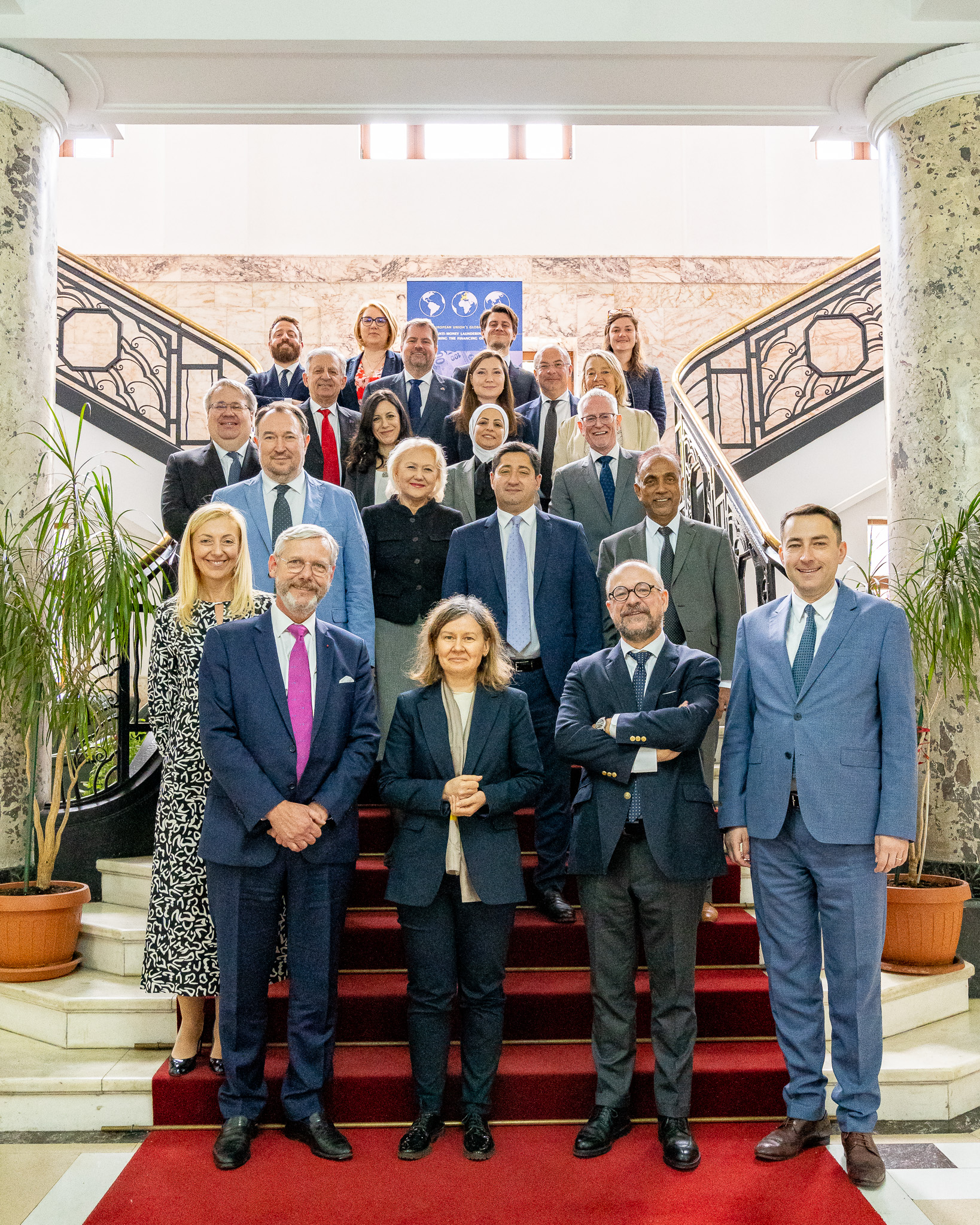Experts convene to develop innovative legal tools to combat money laundering, terrorist financing
Bucarest, 2 May 2022 – High level experts from the judiciary and financial intelligence fields on Wednesday concluded a three-day meeting organised by the EU Global Facility on Anti-Money Laundering and Countering the Financing of Terrorism (EU GF-AML/CFT) in cooperation with the Siracusa International Institute on criminal justice and human rights.
Held at the National Institute of Magistracy of Romania, this constituted the second in a series of collaborative meetings held under the title “Assessing the scope and effectiveness of innovative legal approaches to money laundering (ML) investigations and asset recovery”. These activities seek to lead to the production of a far-reaching study on existing good practice that alleviate the burden of proof in ML investigations and asset recovery procedures. The results of the study shall provide a valuable resource for the work of relevant global and regional institutions (e.g. FATF, FSRBs, EU and UN relevant structures etc.), as well as national authorities and justice sectors.
General Prosecutor of Romania Gabriela Scutea opened the session on Monday, stating “We need to help develop new innovative instruments to combat ML and terrorist financing (TF) worldwide. I am trusting that the result of this collaborative work will be helpful and inspire legal practitioners not only here in Romania but also in many countries of the world.”
For his part, EU Global Facility Team Leader David Hotte noted in his opening remarks: “Today, we need to find a solution to combat ML/TF in an ever more efficient way that is useful for all but also constitutional and in respect of human rights.”
During this specific session, experts worked to identify, in their domestic law, one or several legal mechanisms (legislative provision, rule established by consolidated case law, administrative mechanism, etc.) which facilitate satisfying the reversed burden of proof in ML and cases of illicit enrichment offence.
President of the Siracusa Institute, Jean-François Thony, stressed the importance of the matter, saying “the experts meeting today have one question to answer: how can we improve the fight against money laundering and terrorist financing and how can we ensure that criminals engaging in that kind of activities can be sentenced and deprived of their ill-gotten assets, within the respect of constitutional rights?”
“All practitioners know that the difficulty of providing evidence of the offence of money laundering is more acute than for any other crime, because the essence of this offence is precisely to hide evidence, to make the trail of illicit profits untraceable, and to protect criminal assets from confiscation,” he added.
The Experts Working Group is part of a series of activities organised by the EU GF-AML/CFT and the Siracusa Institute aimed at strengthening international judicial co-operation and the efficient application of existing MLA standards and international instruments by judges and prosecutors.


